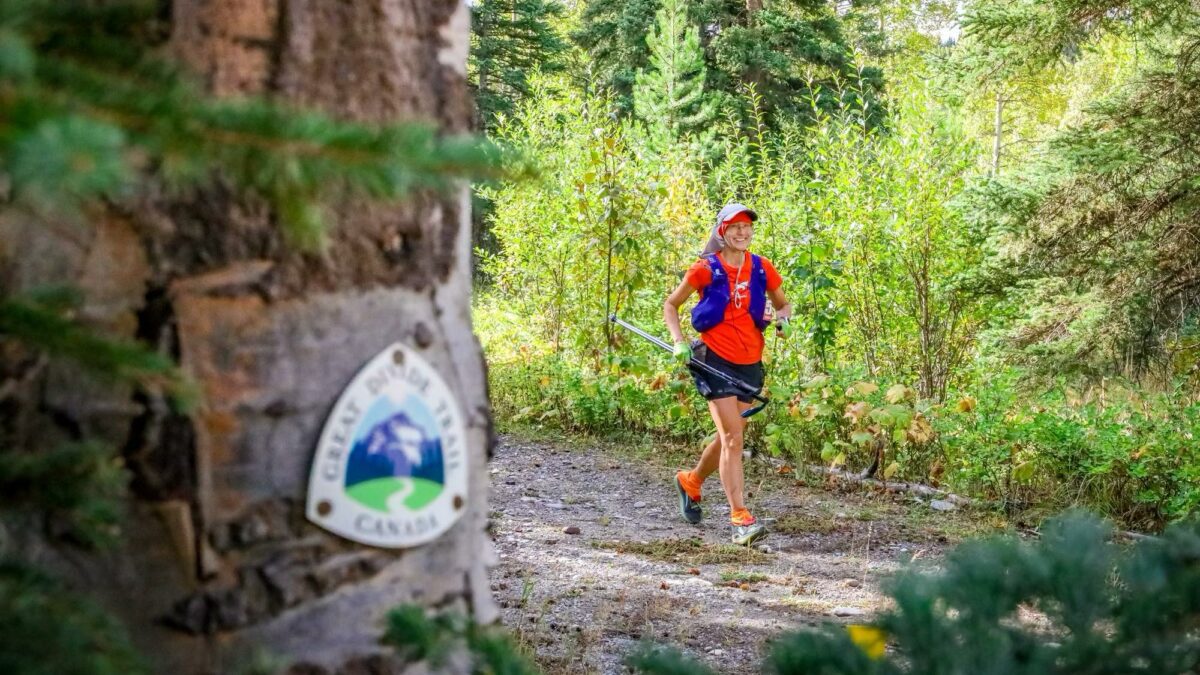This is what a 200-mile race looks like
Hallucinations, dirt naps, epic sunrises and tears: a glimpse into Western Canada's first 200-miler
 Photo by:
Karen Palashniuk
Photo by:
Karen Palashniuk
Beginning on Tuesday, September 12, 100 brave runners tackled Western Canada’s first 200-mile race, The Divide 200. The stories that emerged were gritty, inspiring, and powerful, whether the runners completed the race or left unfinished business in the Rocky Mountains. Through chilly nights and warm days, hallucinations and dirt naps, people moved their bodies a seemingly impossible distance. Here is a glimpse into a 200-mile journey.
“It’s a privilege to choose your own suffering,” Toronto-based athlete Leo Vitelli shared. Vitelli didn’t finish the race, but it’s clear he didn’t lose any enthusiasm from the experience. “There isn’t much to be learned in success. Failing at something guides you to your next step,” he said, adding that he couldn’t be more stoked to get back to training.
Calgary’s Joanna Ford was tackling the 200-mile distance for the first time, and was surprised by the way her body rose to the challenge. “My body adapted and responded over the course of those 81 hours in a way that seemed impossible,” she shared on Instagram. “Running across that finish line, I felt light, smooth and free–as though a new power had awoken in my body.”
Washington’s Selina Danko and Edmonton’s Matthew Prineas finished in the nick of time, supporting one another through the final stretches of the race and making the final cutoff.
While it may seem unbelievable to accomplish 200 miles in under 50 hours, like winner Scott Cooper, it is equally amazing to be out on the trails for 100 hours: for days and nights of highs and lows and repeatedly choosing to continue.
First-place woman Mika Thewes was no stranger to the 200-mile distance, but it was her first race in Canada (she’s based in Colorado), and she rose to the challenge. She said that she ran for almost 100 kilometres in one section without seeing anyone aside from aid station volunteers.
“Definitely the loneliest I’ve been in a race,” she said, highlighting another challenge runners tackle in a long race like this, where athletes get very spaced out along the trail.
Hubbard, N.S., native Lee Alonzo Murphy didn’t have much in the way of mountains to prep for this race–he ran repeats of a 90-metre hill near his home. Many, many repeats. Murphy told volunteers at the 200K mark that his goal was to be in the hot tub by supper time–and he made it.
Ultras can be unpredictable and surprising, challenging runners both physically and mentally. Alberta’s Dave Proctor, known for his cross-Canadian record set in 2022, shared candidly about what led him to leave the race at 192K, despite feeling physically OK. “The first half of an ultra is run with your legs. The back half is run with your heart and head,” shared Proctor on social media. “I dropped at 192kms and some soul searching is in order.”
Signing up, training, and making it to the starting line of a 200-mile race is a wild accomplishment, and whether they nailed their goals or made the tough decision to bow out, these runners gained wisdom and a lifetime of experience over a 100-hour stretch.


